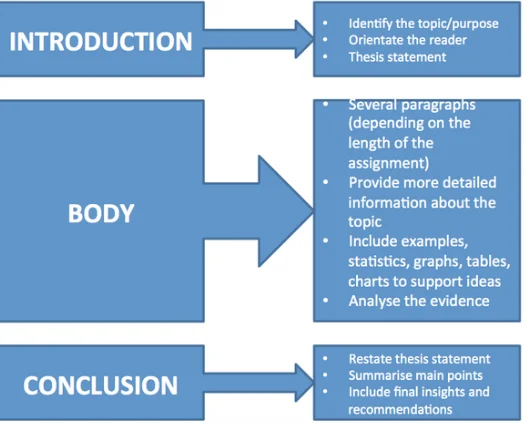- Communications
- Computer Science
- Criminal Justice
- Environmental Management
- Forensic Psychology
- Healthcare Admin
- Human Resources
- Project Management
- Social work
- Special Education
- Sports Management
- Supply Chain Management
- Adult Education
- Business Intelligence
- Early Childhood Education
- Educational Technology
- Homeland Security
- Information Systems Security
- Information Technology
- International Business
- Management Information Systems
- Nonprofit Management
- School Counseling
- Academic Publishing Guide
- Building a Graduate School Resume or CV

Choosing Between a Thesis or Non-thesis Master's Degree
- Expert Guide to Studying Abroad
- FAQ: Online Master's Degrees
- Grad School Guide Book
- Graduate School for Students with Disabilities
- Green Graduate Degrees
- How to Be a Successful Grad Student
- How to Choose the Right Graduate Program
- How to Get a Master's Degree in an Unrelated Field
- How to Transfer College Credits in Grad School
- How to Write a Winning Personal Statement
- Inside Graduate Admissions
- Ivy League Grad Schools
- Master's Degrees for Veterans
- Master's Degree for Women
- Mental Health in Grad School
- Progressive LGBTQ Graduate Degrees
- Should You Apply for a Graduate School Assistantship?
- Surviving Grad School with a Family
- Taking a Gap Year Before Grad School
- Women in STEM Graduate Resources
- Writing a Successful Statement of Purpose
- Alternative Ways to Pay for School
- The Best Part-Time Jobs During Grad School
- Company Funded Graduate School
- FAFSA For Grad Students
- Financial Aid Resources
- Graduate Student Loans
- Paying for Your Master's Degree
- Paying Off Student Loans
- Paying for Your PhD
- Fellowship Opportunities
- LGBTQ Scholarships
- MBA Scholarships
- Scholarship Resources
- Scholarships for Veterans
- Scholarships for Women
- Crushing the GRE Guidebook
- GMAT Guidebook
- Guide to the LSAT
- MCAT Prep for Medical School
- Study Guide: Exam Resources
- TOEFL Prep for Non-Native English Speakers
- Resources Choosing Between a Thesis or Non-thesis Master's Degree
As of 2015, approximately 25.4 million Americans held advanced degrees , with more citizens joining these ranks each year. As studies continue to show the career advancement and salary benefits of completing a master's degree, more and more students elect to pursue advanced educations. When considering their options, many question whether to enroll in a master's requiring a thesis or not. The following guide examines some of the reasons degree seekers may want to write a thesis while also highlighting why they might not. Students on the fence about this important decision can find expert advice, actionable tips, and relevant guidance to help them make an informed choice in the guide that follows.
Understanding the Master's Thesis
What is the difference between a thesis & non-thesis master's program, the decision not to do a thesis.
As students research various master's programs in their chosen discipline, it's common to find that many degrees require a thesis – especially if they want to enter a research-heavy field. While this word gets thrown around a lot in academia, some learners may want more information regarding what it entails in order to make an informed decision.
What is a Master's Thesis?
The master's thesis is an original piece of scholarship allowing the student to dig into a topic and produce an expanded document that demonstrates how their knowledge has grown throughout the degree program. These documents require significant independent research of primary and secondary sources and, depending on the subject, may require interviews and/or surveys to support the overarching argument.
Individual schools and departments dictate the length of these documents, but they typically range between 60 and 100 pages – or approximately 20,000 to 40,000 words. While tackling a document of such heft may seem overwhelming at first, learners need not fret. Each master's candidate receives a faculty advisor early in their tenure to provide support, feedback, and guidance throughout the process. Because the final thesis is expected to be of a publishable quality, learners seeking the highest marks typically send their supervisor excerpts of the document as they write to ensure they are on the right track.
When picking a thesis topic, no magical formula exists. Students should consider their interests and read extensively on that topic to get a better sense of existing scholarship. They should also speak to other academics working in that sphere to familiarize themselves with ongoing projects. Only after they feel reasonably well-read should they begin looking for uncovered angles or interesting ways of using emerging methodologies to bring new light to the topic.
When considering formatting, degree seekers should check with their specific schools and departments, as they may have unique requirements. To get a general understanding of what to expect, learners can review Simon Fraser University's guidelines on thesis formatting. After completing the thesis, some programs require an oral defense before a committee while others read the document and provide a grade. Check with your prospective schools to get a better sense of procedure.
Format & Components of a Master's Thesis
While this guide attempts to provide helpful and actionable information about the process of deciding whether to follow a thesis or non-thesis track in a master's program, readers should remember that specific components and requirements of a thesis vary according to discipline, university, and department. That being said, some commonalities exist across all these – especially when it comes to what students must include in their final drafts.
As the first section a reader encounters after moving through the table of contents and other anterior text, the introductory allows the writer to firmly establish what they want to accomplish. Sometimes also called the "research question" section, the introductory must clearly state the goals of the paper and the overarching hypothesis guiding the argument. This should be written in a professional yet accessible tone that allows individuals without specializations in the field to understand the text.
This section allows learners to demonstrate their deep knowledge of the field by providing context to existing texts within their chosen discipline Learners review the main bodies of work, highlighting any issues they find within each. Constructive criticism often centers around shortcomings, blind spots, or outdated hypotheses.
Students use this section to explain how they went about their work. While scientists may point to a specific method used to reach conclusions, historians may reference the use of an emerging framework for understanding history to bring new light to a topic. The point of this section is to demonstrate the thought processes that led to your findings.
This section allows for learners to show what they learned during the research process in a non-biased way. Students should simply state what information they gathered by utilizing a specific framework or methodology and arrange those findings, without interpretation, in an easy-to-read fashion.
After providing readers with all the necessary information, the discussion section exists for candidates to interpret the raw data and demonstrate how their research led to a new understanding or contributed a unique perspective to the field. This section should directly connect to the introduction by reinforcing the hypothesis and showing how you answered the questions posed.
Even though the previous sections give prospective degree seekers a better sense of what to expect if they decide to write a thesis during their master's program, they don't necessarily help learners decide whether to pursue a thesis or non-thesis track. The following section highlights some of the reasons students frequently choose to complete a thesis or bypass the process altogether by providing a pros and cons list.
Why a Thesis Program
- Especially when entering a research-heavy discipline, completing a thesis shows prospective schools and employers that you possess the skills needed for researching and writing long-form reports.
- Students hoping to pursue a Ph.D. stand in better stead with admissions panels if they wrote a thesis during a master's program.
- Individuals hoping to enter a field that values syntax and grammar often better their writing skills by completing a thesis.
- Students who write a thesis can submit the final product to various academic journals, increasing their chances of getting published.
- Theses expand students' understanding of what they're capable of, deepen their ability to carry out an argument, and develop their skills in making connections between ideas.
Why a Non-thesis Program
- Because they don't require a significant written product, non-thesis master's tend to take less time to complete.
- Often mirrors a bachelor's program in terms of structure, allowing learners to complete classes and take exams without a great deal of research or writing.
- Students who excel in project-based assignments can continue building skills in this arena rather than focusing on skills they don't plan to use (e.g. research)
- Provides learners the opportunity to work more closely and more frequently with faculty on real-world projects since they don't spend hundreds of hours researching/writing.
- Allows learners to take more classes and gain hands-on skills to fill the time they would have spent researching and writing a thesis.
How to Choose a Master's Program: FAQs
Within some academic disciplines and professional fields, research and writing plays a key role in work done on a daily basis. Because of this, master's programs in these fields require learners to complete theses to compete against peers and be seen as competent in their work. Other disciplines, conversely, rely on other tools to accomplish work and progress ideas – making theses less important.
Yes. Master's programs focused more on application than research typically don't require a thesis – although they may still give students the option. Examples of common non-thesis master's programs include nursing, business, and education.
Even though non-thesis students won't be writing a 100-page paper, that doesn't mean they avoid completing a significant project. In place of a thesis, most applied master's programs require students to take part in at least one internship or complete a culminating project. These projects typically ask learners to take what they learned throughout coursework and create an expansive final project – examples include case studies, creative works, or portfolios.
While students who followed a non-thesis path routinely receive acceptance to Ph.D. programs, those with theses often find the process easier. Even if a learner pursues a Ph.D. in a discipline that isn't research-heavy, admissions panels still want to get a sense of your academic interests and ability to engage in independent, nuanced thought. Students with theses can provide solid proof of these skills, while those without may struggle to demonstrate preparedness as thoroughly.
The answer to this question depends on many factors, but typically it is okay not to do a thesis if you plan to enter a field that doesn't depend heavily on research or writing, or if you don't plan to complete a Ph.D.
Students wanting to work in academic, research, or writing should always opt for the thesis track. They should also follow this path if they have any doctoral degree aspirations.
Ultimately, the decision of whether or not to complete a thesis rests with the individual student. Figuring out how to proceed on this front requires lots of careful consideration, and learners should ensure they consider various aspects before coming to a final decision. The following section helps students consider how they should and should not come to a conclusion.
Dos and Don'ts of Choosing a Thesis or Non-thesis Program
- Consider the longevity of your decision: will you feel the same in 5-10 years or are you making a decision based on current desires?
- Talk to others who with experience in this area. Ask them questions about their decision-making process and if they regret their choice.
- Research potential thesis topics before starting a program. Going in with a game plan can help you feel more confident and settled about the process than if you're scrambling for a topic while in school.
- Reach out to prospective schools to speak with faculty and/or current students following both tracks. This will provide knowledge specific to the school while also expanding your network if you choose to attend there.
- Research Ph.D. entrance requirements to ascertain if the majority expect learners to possess a thesis when applying. This will give you a sense of whether you may experience issues later on if you do not complete one.
- Decide not to complete a thesis simply because you have never taken on such a task and feel overwhelmed or fearful that you will fail.
- Complete a thesis simply because you think it will look good on your resume. Theses require intense devotion over an extended amount of time; learners who complete them without conviction often find the process miserable.
- Forget to research alternatives to writing a thesis. Just because you don't complete a research paper doesn't mean a non-thesis track lacks rigor or challenging coursework.
- Forget to read examples of theses by previous students. If you feel overwhelmed by the task, reading work other people have done can often make the task at hand feel less scary.
- Let yourself off easy by taking the non-thesis path. If you find you have extra time in the program, talk to your advisor about taking more classes, develop meaningful projects for yourself, or see about presenting at an academic conference.
From the Expert

Sudiksha Joshi, Ph.D. is a learning advocate. Her mission is to empower our youth to think bigger, bolder thoughts and forge a career path that will change the world. She taps into her natural curiosity and ability to identify strengths to help students and those in transition find their path from feeling lost in the traditional ways of achieving success to charting their own path. Her work has been featured in Forbes, Huffington Post, Thrive Global, Medium and LinkedIn.
Why might a student decide to follow a thesis track? Why might they follow a non-thesis track?
A student might decide to take a thesis track if she/he wants to pursue a Ph.D. Also, if the students want to focus on careers where research and writing have a strong focus, the students opt for the thesis option. Research assistantships at the graduate level are also more often available to students who opt for the thesis option.
A student who might feel that writing is not one of their strengths might choose to go the non-thesis track. Likewise, a student who has other work commitments may find a non-thesis option more convenient.
Do you have any tips for deciding on a program?
I chose a thesis option because being able to conduct independent research was a big reason to go to graduate school. Also, showing the ability that I could do research was what afforded me research assistantships which meant that my tuition was paid for and I got a stipend that paid for expenses while I was in graduate school. This also allowed me the opportunity to work closely with the faculty mentor that provided me with the support and the accountability I wanted.
I would not recommend taking a non-thesis option if all the degree requires is for you to take courses. You have little to show in terms of your learning other than your grades unless you are already working on something on the side that does that for you and all you need is a certificate.
Opt for a non-thesis option if you can still work closely with a professor or on a project and if you'd rather be involved in multiple projects rather than focus on a single project. If you already have a good (informed) reason for choosing one over the other, go for it.
What's the most important thing to consider when choosing a program?
The most important thing to consider when choosing a program is getting excited about the projects that at least one of the faculty members are involved in. Do some research and see why you are excited about a particular work that at least one of the faculty members have been involved in.
Who should students talk to when considering options?
Students should talk to other students and also reach out directly to the graduate coordinator and even individual faculty members. This means that students should have done prior homework and have some good questions ready. Asking good questions will get you at least halfway through to make the right decision.
- Write my thesis
- Thesis writers
- Buy thesis papers
- Bachelor thesis
- Master's thesis
- Thesis editing services
- Thesis proofreading services
- Buy a thesis online
- Write my dissertation
- Dissertation proposal help
- Pay for dissertation
- Custom dissertation
- Dissertation help online
- Buy dissertation online
- Cheap dissertation
- Dissertation editing services
- Write my research paper
- Buy research paper online
- Pay for research paper
- Research paper help
- Order research paper
- Custom research paper
- Cheap research paper
- Research papers for sale
- Thesis subjects
- How It Works
What Is The Difference Between A Thesis Or Non-Thesis Master’s Degree?

If you’re looking forward to enrolling in a master’s degree program, it helps to comprehend what a master’s thesis entails clearly. Some learners still can’t explain the primary difference between a non-thesis master’s degree and a thesis master’s degree. In this article, we help you understand the difference as we highlight other vital facts about the topic. So, let’s do this!
What Is a Master’s Thesis?
What is the length of a master’s thesis, structure and details in master’s thesis, why you should choose a master’s thesis program.
- The Difference between Thesis and Non-Thesis Program
What Are the Pros and Cons of a Non-Thesis Master’s Program?
Thesis or non-thesis master’s degree faqs, make a decision today.
A master’s thesis is a lengthy and comprehensive scholarly paper that lets you dig deeper into your field of expertise and manifest your growth as a learner. Suppose you undertake a research-oriented degree; you will need to give your graduate school a thesis. That is the best way to portray your practical skills ahead of culmination.
For instance, if you are a psychology major, you might be asked to write a thesis showing the relationship between color and mood. Based on your program, your skills and ability will be weighed differently. It all depends on what the graduate school wants its students to have. The good thing is with the perfect thesis statement; you will have a chance to prove your statement or idea on paper, develop your argument, and come up with a masterpiece.
Your master thesis will be between 40 and 300 pages long, which doesn’t include the bibliography. Many factors can affect the actual length of your thesis for your master’s. For instance, your dissertation topic for masters and method of analysis will be used to determine the appropriate pages to write.
The examiner will ensure that students receive clear instructions on how to handle the thesis. Note that most of the time, you will have a period of two semesters to complete your thesis. Well, that’s enough time to meet all requirements.
Provided you are interested in writing a master’s thesis, it is advisable to develop the right topic early in your academic program. That way, you will have ample time to come up with great research questions so that you submit a top-quality project.
Would you like to know the structure and details of a master’s thesis? The structure is the basis of writing a master thesis that wins you not just a master’s degree but also scholarly recognition. Here’s the information on a relevant structure you need to follow:
- The Summary: In this section, you must indicate your introduction alongside the research questions. Aside from the method of data collection and analysis, you also need to include the master’s degree paper finding and conclusion.
- Introduction: In the introduction, you need to clarify the context of your research question. Don’t forget to mention the existing knowledge and previous research as well as your thesis question.
- Theory: Your theory lets you mention what other individuals have to say about the same subject matter. This comes in handy when you are dealing with empirical research.
- Method: In the method chapter, it is crucial to portray where your research, as well as the method, positions itself in the field of science. Don’t make your method chapter too long and descriptive.
- Presentation of Data and Findings : Here is where you must indicate your findings from the data you had analyzed. You must show your examiners that you have a deep understanding of the requirements, such as the research question.
- Discussion: Discuss your findings in plain language. You might want to relate your findings to the previous research to showcase your relevance throughout the project.
- Summary and Implications : Now that you are ending the thesis for your masters, make sure you summarize your main points. Make it brief and clear. If you forgot to clarify something in your master’s degree paper, here is the right place to do that.
There are many reasons students need to write a master’s degree thesis. If you want to have the best learning experience and show that you are a smart graduate, then writing a dissertation for a master’s thesis is something you should embrace. More so, if you choose to write a thesis for masters:
- You will have the rare chance of delving deeper into the field of research, becoming a student with an in-depth understanding of their course and career as a whole.
- You will notice that most companies prefer students with thesis papers on their portfolios, and you can simply be one of them if you choose a thesis master.
- It is the best way to indicate that you have gained adequate writing skills and possess an inborn willingness to learn.
- Defending your thesis program shows that you have competitive critical thinking skills as well as public speaking skills.
The Difference Between Thesis and Non-Thesis Program
What’s the difference between thesis and non-thesis masters? Well, if you opt for a non-thesis program, you won’t have to write a lengthy, compressive research paper to attain the graduation requirements. Note that whether you choose a thesis or non-thesis master’s, at the end of your program, you will need to submit your final paper to show your critical thinking skills.
Also, if you go for a non-thesis program, your final project can either be a field experience or a capstone project. Those are the main differences you need to know about a master’s degree thesis and non-thesis program.
A thesis is a primary requirement in most fields of research. However, not all master’s programs will require you to complete a thesis. To be precise, some institutions or fields will let you choose between a thesis and a non-thesis master’s program. The same applies to a PhD; you can opt for PhD without a thesis (non-thesis PhD).
The pros of a non-thesis master’s program are not that strong. But they are still worth mentioning. The main advantage of a master’s degree without a thesis is that you:
- You will have a smooth learning experience
- You won’t have to spend time thinking about research skills.
- You are free from conducting detailed research analysis and writing a lengthy project.
On the flip side:
- A non-thesis master’s degree might not show you as a competent student.
- Your employers might not be able to know whether you have the required communication and critical thinking skills.
- Since you won’t have the chance to post your thesis on a scholarly website, your credibility would be hard to determine.
Does Every Master’s Degree Require a Thesis?
The shortest answer is a resounding no. Not all master’s degrees require a thesis. However, the institution will allow you to choose whether you would like your program to be a thesis or a non-thesis one. As we already mentioned, there are lots of benefits you can enjoy when you go for the thesis master’s program.
Aside from showing that you’ve got incredible analysis skills, writing a thesis shows that you are serious about your field of expertise. But if you don’t want to write a lengthy paper, then you have the freedom to avoid choosing a thesis master’s program. A master without a thesis is still worth it.
Do We Have Any Tips For Choosing A Program?
Yes! There are essential tips that can help you choose the best program. Here are some of them for your reference:
- You should know where your passion lies: It is advisable not to pick a program because it is marketable. If you don’t like it, you won’t excel in it. If you have a strong passion for something, even if it is not quite interesting, you can thrive and earn good money from it.
- Know your abilities : Some programs are so tough that only the most resilient students can complete them. If you are not willing to go beyond the limits trying to break the ice, you should not go for that program.
- Know the duration of the program : Some programs only need two years to complete, while some will run for up to six years. Think about the time you have left to complete a course and make up your mind based on that.
How Long Does it Take to Write a Master’s Thesis?
There’s no specific time you need to complete your master’s thesis. It is all about your program and the type of school committee you are dealing with. We have already seen that in most cases, you will need to complete your master’s degree thesis in two semesters.
Some institutions might give you a shorter period or a more extended period. If you feel that you have a short deadline, it is better to begin your master’s degree dissertation as soon as possible. Even if you have six months or one year to write your thesis, you need to start early enough. Remember, the time might seem lengthy, but the thesis might be a lengthy and comprehensive one as well.
Now that you know the difference between a thesis and a non-thesis master’s degree, you can go ahead and make your decision today. But if you want to have the best learning experience and a rewarding outcome, you can order the professional thesis master’s help and receive the most helpful assistance for your dissertation.
Leave a Reply Cancel reply
- For inquiries contact us via Mobile/Viber/WhatsApp/Email
- Mobile: 09171901821
- 09171901823
- Landline: (632)87375580
- Email: [email protected]

Thesis and Non-Thesis Master’s: What’s the Difference?
- August 6, 2024
Pursuing a master’s degree is a significant step in advancing your education and career, offering specialized study and increased opportunities. As this is a pivotal moment in your career, understanding the difference between thesis and non-thesis master’s programs is crucial.
This blog will explore what the core differences are between thesis and non-thesis master’s degrees, their benefits, and how to choose the right path for your goals.

What is a Thesis Master’s Degree?
A thesis online master’s degree is a graduate program that involves both advanced coursework and a significant research component culminating in a written thesis. The thesis should contribute new knowledge or insights to the academic community, showcasing the student’s ability to conduct independent, in-depth research.
This type of program is designed for students who wish to engage deeply with their subject area and contribute original knowledge or insights to their field of study.
Components of a Thesis Program
While the exact components will depend on the chosen course or field of study, the basic components of a thesis program are as follows:
- Coursework: Students take advanced courses related to their field of study, covering both foundational and specialized topics.
- Research: Students design and conduct original research under the guidance of a faculty advisor. This involves data collection, analysis, and interpretation.
- Thesis Writing: The culmination of the program is the thesis document, which details the research process and findings. This often includes an introduction, literature review, methodology, results, discussion, and conclusion.
Time Commitment and Typical Duration
A thesis master’s program, such as an MBA, usually takes two to three years to complete, depending on the field of study, the specific program requirements, and the student’s pace. The time commitment is substantial, particularly during the research and writing phases, as these require sustained focus and effort.
Now let’s take a look at why you should consider a thesis Master’s in Business Administration degree.

Benefits of a Thesis Master’s Degree
Pursuing a thesis master’s MBA degree allows you to engage in original research, develop advanced analytical skills, and prepare for a career in academia or research-intensive fields. Here are other benefits to consider:
- Preparation for PhD Programs: A thesis master’s is excellent preparation for doctoral studies, as it provides significant research experience.
- Deep Research Skills: Students develop strong analytical, methodological, and critical thinking skills through their research.
- Contribution to the Field: Completing a thesis allows students to make a meaningful contribution to their academic discipline.
- Expertise and Specialization: Students gain deep expertise in their specific area of interest, enhancing their knowledge and credentials.
To better understand the difference between thesis vs. non-thesis master’s programs, we also need to examine what a non-thesis program is like.
What is a Non-Thesis Master’s Degree?
A non-thesis master’s degree involves completing a series of courses and practical projects. Unlike a thesis program, it does not require the completion of a research thesis. Instead, students may undertake comprehensive exams or capstone projects to demonstrate their mastery of the subject matter.
The primary purpose of a non-thesis master’s degree is to equip students with practical skills and knowledge applicable to their professional field. The focus is on real-world application, preparing graduates for immediate entry or advancement in their careers.
This type of program, such as a non-thesis MBA program , is designed for students who wish to enhance their professional skills and quickly apply their knowledge in the workforce.
Components of a Non-Thesis Program
As with a thesis master’s degree, a non-thesis program will vary based on the field of study, but in general, will contain:
- Coursework: Students complete a range of required and elective courses that provide in-depth knowledge of their field. These courses often emphasize practical skills and applied learning.
- Projects: Many non-thesis programs include capstone projects or group projects that allow students to apply their learning to real-world problems. These projects often simulate professional work environments and tasks.
- Exams: Some programs require students to pass comprehensive exams that test their knowledge and understanding of the coursework.

A non-thesis master’s program typically takes one to two years to complete, depending on the field of study, the specific program requirements, and the student’s pace. The time commitment is often more manageable than that of a thesis program, as it focuses more on coursework and less on independent research.
Now let’s look at why you should consider a non-thesis MBA program .
Benefits of a Non-Thesis Master’s Degree
A non-thesis master’s degree equips you with practical skills and knowledge for immediate professional application, enabling quicker entry or advancement in your career. Here are more benefits to conside:
- Faster Completion: Non-thesis programs can often be completed more quickly than thesis programs, allowing students to enter or return to the workforce sooner.
- Career-Oriented Skills: These programs emphasize practical, career-oriented skills, making graduates attractive to employers in their field.
- Flexibility: Non-thesis programs may offer more flexibility in terms of course selection and scheduling, which can be beneficial for working professionals.
- Professional Application: The focus on practical projects and applied learning helps students gain experience that is directly relevant to their careers.
Key Differences Between a Thesis and Non-Thesis Master’s Program
With so many factors to consider, it can be confusing. To make it easier for you to decide, we’ve listed the key differences between thesis and non-thesis master’s degrees below:
Choosing Between a Thesis and Non-Thesis Master’s Degree
When deciding between a thesis and a non-thesis master’s degree, you need to align your choice with your career objectives. Think about your aspirations and whether your field values research proficiency or practical skills. Evaluate the time and financial investment required for each option, weighing the potential benefits against your resources.
If you’re still on the fence, it’s best to ask for guidance from academic advisors and industry professionals who can provide valuable insights tailored to your specific circumstances and goals.
By thoroughly assessing these factors, you can make a well-informed decision that sets you on the path to success in your chosen field.
Making the Right Choice for Your Future
Whether you prioritize research proficiency or practical skills, understanding the implications of each option is vital. Remember, this decision marks a significant milestone in your academic and professional journey, so take the time to make an informed choice. Rest assured that with thorough consideration and guidance, you’re well-equipped to embark on a fulfilling and successful path towards your future endeavors!
Explore your options with OEd Postgrad , the premier online learning platform offering flexible master’s degree programs tailored to your needs. Whether you’re drawn to the depth of a thesis or the practicality of a non-thesis program, OEd Postgrad provides a diverse range of options to suit your career goals. Enroll today to embark on a journey of academic excellence, supported by expert faculty and innovative online resources.

Get In Touch
Need more information about our online cpd courses, fill-up the form below and we'll get back to you within 24 hours, need more information about our online mba courses, need more information about our oed short courses.
Get our weekly advice
Keep up-to-date with the latest advice from Abound Grad School.

What to Think About When Choosing Between a Thesis & Non-Thesis Master’s Degree
When choosing a graduate program, you’ll find that you may have to decide between pursuing either a thesis or non-thesis master’s degree. Although employers do not consider which you choose during the hiring process, your decision can significantly impact the skills you acquire in your academic career.
What Is the difference?
A non-thesis master’s degree focuses on coursework . Students are immersed into projects and learning environments that help strengthen their knowledge in their field. Similar to undergraduate programs, a non-thesis program is structured around assignments, group and individual projects, and exams. Research may be included somewhere in the program, but it is primarily focused on helping students achieve skills that will help them become more successful in their careers. This degree path typically has more courses than a non-thesis degree but can be completed in a shorter amount of time.
A thesis master’s degree is more research intensive. Students who aim to work on a thesis can expect to do more reading and writing as they specialize their knowledge. The coursework is generally centered around preparation for a final thesis, building their skills in research, data collection, analysis, and writing. Professors act more as guides and advisors who help students clarify their goals and aid in their research projects and thesis development. Master’s theses are a great primer for anyone looking to pursue a Ph.D., as research skills will be crucial in the development of a dissertation.
Which One Should You Choose?
Ultimately, there is no right or wrong degree path. Both degrees offer a quality education that can help you excel. One thing to consider when deliberating is why you’re pursuing your graduate degree. If you’re going back to college to help you change fields or get to that next level of your career, a non-thesis master’s degree can help you get there. If you want to dive into a career in research and development or pursue a Ph.D., a thesis master’s degree may be more worthwhile.

Another thing to consider is your learning style. What methods of learning do you enjoy more? If you thrive in group projects and assignments, a non-thesis degree may be more efficient in helping you retain information. For those of you independent thinkers who love to dive deeply into subjects, you might relish in the idea of the research needed in the production of a thesis. Think about what type of academic environment will motivate you to earn your degree.
Here are 7 questions that you can ask yourself to help you decide:
- What are my career goals?
- Where do I see myself in 5 to 10 years?
- What motivated me to pursue a master’s degree in the first place?
- What are my plans after graduation?
- Do I want to learn in a classroom setting, or do I want to be more independent?
- Am I interested in learning about research?
- How much writing do I want in my program?
If you have any questions or want to learn more about what each program has to offer, reach out to your school’s faculty and admissions officers. After all, the most important thing about a program isn’t the name of the degree, but what you gain from it.

Ultimate Guide to Grad School Applications

How to Choose a Grad Program as an International Student

How to Network in Graduate School
Pursuing a non-thesis master’s degree: Is it worth it?
When navigating the world of master’s programs, the plethora of choices can be bewildering. For instance, prospective candidates often grapple with questions regarding the nature and value of non-thesis master’s degrees. To demystify these programs and provide clarity, delve into this guide to gain insights into commonly asked questions about non-thesis master’s degrees and equip yourself with the knowledge needed to determine whether such a program aligns with your academic and career goals.
What is a non-thesis master’s degree?
The difference between non-thesis and thesis master’s degrees, how common are non-thesis master’s degree, the length of a thesis vs. non-thesis master’s degree, reasons to pursue a non-thesis master’s degree, how to decide whether a non-thesis master’s degree is right for you.
A non-thesis master’s degree, also known as a coursework-based master’s degree, is a graduate program where students typically do not need to complete a research-based thesis as a requirement for graduation.
These programs are often more focused on coursework, examinations, projects, or practical experience.
Instead of conducting original research and writing a thesis, students in non-thesis master’s programs primarily take courses and complete a set number of credits or specific coursework.
Non-thesis master’s programs are common in various fields, especially in disciplines where practical skills and knowledge are more important than conducting independent research. For example, non-thesis master’s programs are often found in business administration (MBA), education (M.Ed.), public administration, healthcare administration, and some engineering and technology-related fields.
A non-thesis master’s degree can be definitely worth it is you are aware of the differences and decide that this option best fits to your ambitions, learning style and future career prospects.
A non-thesis master’s degree can undoubtedly be worth it, provided that you are well-informed about the distinctions between program types and have carefully concluded that this option aligns with your aspirations, preferred learning approach, and the potential pathways it offers for your future career.
In contrast to a non-thesis master’s degree, thesis-based master’s programs require students to conduct original research, write a thesis based on their research findings, and defend their thesis in front of a committee of faculty members. The choice between a thesis and a non-thesis master’s program often depends on the goals and career aspirations of the student and the requirements of the specific program or institution.
It’s crucial to understand that a thesis-based master’s degree isn’t exclusively tailored for those aspiring to enter academia or pursue a Ph.D. In fact, a significant majority of individuals pursuing a master’s program that includes a thesis ultimately find their paths in various professional fields.
Engaging in a thesis offers a unique opportunity to delve deeply into a specific subject, foster independence in research, and gain invaluable experience in project management. It involves conceiving an idea, structuring a project, and executing it, reflecting a multifaceted skill set.
A thesis-based master’s degree serves as a testament to one’s complex analytical thinking, as well as their unwavering determination.
However, it’s important to note that this does not imply that non-thesis master’s degrees are inherently inferior or misguided choices. The decision to pursue a non-thesis program should be a well-considered one, grounded in a thorough assessment of your personal motivations and objectives.
Non-thesis master’s degrees vary in prevalence across different regions. In many European contexts, for instance, most master’s programs tend to culminate with a more extensive project that necessitates original research. However, internships and practical projects also hold a stronger presence in many programs.
Furthermore, the prevalence of non-thesis master’s degrees is significantly influenced by the academic discipline in question. For instance, these degrees are more commonly found in fields like business and education as compared to social sciences or humanities.
Non-thesis master’s programs are designed to equip students with practical skills and knowledge that can be immediately applied in a professional context, as opposed to focusing on original research. In several European countries, these programs may be referred to as “professional” or “applied” master’s degrees, emphasizing practical training and real-world experience.
Additionally, in some contexts non-thesis master’s programs might maintain a research-oriented element, where students are expected to complete a final project or a capstone experience that could involve some original research or data analysis, albeit usually less extensive than a traditional thesis.
In general, non-thesis master’s degrees are relatively less prevalent, and their particular structure and prerequisites exhibit variations not only between countries but also among different universities.
Consequently, conducting comprehensive research to comprehend the specific program requirements and expectations is of paramount importance prior to applying.
It is erroneous to assume that a non-thesis master’s degree requires less time to complete than a master’s program with a thesis component.
It’s essential not to conflate thesis and non-thesis master’s degrees with one-year or two-year master’s programs . In fact, many one-year programs do incorporate a thesis component.
Thus, if your primary goal is expediency and obtaining a degree within a shorter timeframe, the question of whether to pursue a non-thesis master’s degree may not be the most relevant one to consider.
Pursuing a non-thesis master’s degree can offer unique advantages for individuals with diverse career goals and learning preferences:
- Interest in practical and applied knowledge: Non-thesis programs often emphasize practical, hands-on knowledge that can be immediately applied in real-world scenarios.
- Leadership development: Many non-thesis degree programs place a stronger focus on leadership skills, preparing students for roles where practical skills are essential in leading projects or teams.
- Broadening career opportunities: Some fields, like business and education, highly value practical skills and knowledge, and a non-thesis master’s can open doors to a wider range of career opportunities.
- Balancing work and study: For individuals who are working professionals or have other commitments, non-thesis programs can be more accommodating in terms of managing work-study balance.
- Lack of interest in research or academic writing: Some students may simply prefer coursework over extensive research and thesis writing, finding non-thesis programs a better fit for their academic and career goals.
Choosing the ideal master’s degree program is a significant decision, and it’s essential to align your academic journey with your aspirations. Pursuing a non-thesis master’s degree presents distinctive benefits that cater to a wide range of career objectives and learning styles. To make an informed choice, ponder the following questions:
- What are your career goals and aspirations? Think about the specific roles or industries you want to work in after completing your master’s degree.
- Do you enjoy research and academic writing? Consider your preferences for in-depth research and thesis writing as some programs require these components.
- Do you value practical, real-world experience? Assess whether you prioritize hands-on learning and the application of knowledge in practical settings.
- What are the specific industry requirements in your field of interest? Research whether non-thesis or thesis-based programs are more aligned with the expectations of your desired industry.
- What is your learning style? Reflect on your preferences for coursework, projects, and presentations versus extensive research and academic writing.
- What type of assessment methods do you find engaging? Determine if you enjoy diverse evaluation methods, such as projects, presentations, and coursework, or if you prefer a single research-based project.
Master Academia
Get new content delivered directly to your inbox.
Subscribe and receive Master Academia's quarterly newsletter.
10 tips for engaging your audience in academic writing
The best online courses for phd researchers in 2024, related articles.

How hard is it to get a PhD? Definitely not easy!

Are doctoral summer schools for PhD students worth it?

10 common challenges of first-year students (+ practical solutions)

A comprehensive guide to part-time PhDs
- Learning Tips
- Exam Guides
- School Life
Thesis or Non-Thesis Masters: Deciding which one is Worth It
- by Judy Jeni
- January 26, 2024

A non-thesis masters is the type of degree that consists of classroom-based studies only. It has a set of core subjects for every semester. Also, the faculty expects you to do a bit of research and writing.
A non-thesis version is for you to enjoy learning about different fields or being a generalist. The course structure focus on laying the ground for creativity, teamwork, leadership skills, and a professional career.
Is a Non-Thesis Masters Worth it?
A non-thesis masters program is worth it because it offers a convenient program that allows one to concentrate more on classwork and tens of hours in doing research. Generally, A non-thesis master’s degree can offer you enough background to enable you to excel by avoiding a lot of technical research.

When you are doing a non-thesis option, you will not go through an oral defense.
In this case, you have to take an additional class to compensate for the time to do you would do in the thesis.
The decision to do or not to do a thesis resists with an individual student. As a learner, you should consider various perspectives before making a final decision.
You can talk to your seniors for further guidance. Also, you can make a decision when you are not good at research or you fear failing a thesis and you want to avoid it altogether.
Is a Thesis Master’s Worth It
A thesis master’s is worth it because it gives a student the opportunity to carry an original piece that enables him or her to carry deep primary research, analyze collected data, and present concrete support prove the hypothesis.
It also allows students to dig into the topic and create an expanded document where they will demonstrate their knowledge throughout the degree program.
When working on such a document, you need to perform independent research from secondary and primary sources. Depending on the subject, you may use surveys or interviews to support your argument.
Some specific departments or schools will determine the length of the document. The standard range is from 40 to 100 pages. Every master’s student gets a faculty advisor to provide support.
Before picking your thesis topic, you do not require a magical formula. One should exploit the area of interest and read widely.
Which is better; Thesis or Non-Thesis Masters

When you are weighing between the two options, know that any decisions will be relevant as long as you understand the limits of each option.
For instance, a non-thesis master’s does not imply that it lacks challenging coursework. It only means that there is another approach to handle it.
There is no better degree than the other between a thesis and a non-thesis master’s degree because each choice depends on one’s career goals .
Both degrees carry equal weight in terms of qualification and academic writing ability. Also, each degree option fulfills an equally different academic satisfaction based the discipline of study.
For example, a thesis program is a heavy research discipline. When you complete a thesis, you will demonstrate to the employers that you have the needed skills for writing long-form reports or researching.
On the contrary, if you want to complete your course using less time to complete, then a non-thesis program fits you. That is because it does not need a specific written product.
Times when Thesis Masters is Better
There are situations when a thesis master’s can have more weight than the non-thesis master’s. If you are still debating on the two issues, you can use the following insight to decide the type of program that suits you.
1. Boosts you Employability
When you are writing a thesis, it means you have to perform extensive research. If you have superb research skills, it can be attractive to potential employers.
These employers know that you worked on detailed work which requires dedication and effort. Also, any researched-based employer could have a keen interest in your profile.
2. When you want to Develop Critical Skills

A thesis is a final project that is tedious and time-consuming. You will learn time management skills, development organization, and planning skills as you go for it.
Furthermore, it allows one to develop critical thinking and exceptional communicational skills.
Since you will have to defend your findings orally, it places a demand on you to learn presentation skills.
3. When you want to Pursue Interest
The thesis allows students to develop their idea and titles. As such, they have the liberty to explore in-depth research into a particular topic of research. It allows one to take a fascinating look into an area that you are passionate about.
The thesis is critical as it expands your understanding of what you can do. It will deepen your potential to carry out a research and possess the skills of making connections between ideas.
4. Guide your Steps
A thesis will guide your steps to understand the next move. Suppose you decide to pursue your research interests within the thesis; you can discover an item that you need to follow further.
Furthermore, when you write a successful thesis, the chance of getting it published is high. You only have to submit it to various academic journals.
If you hope to pursue a Ph.D., you stand a great chance with the admission panel if you did a thesis during the master’s program.
Instances When Non-Thesis Masters is Better
Non-thesis masters can be helpful to students for particular reasons. This section offers insight that will become helpful if you prefer to take it in the university.
1. Quick Completion
A non-thesis master’s program takes less time than its thesis master’s program. Since one will not be doing heavy research, the course tends to be short. Instead, you will be doing more classwork without having to defend your finding on a panel orally.
If you have limited time, you can do a non-thesis program to agree with your situation. Since you have to spend more time in class, you will concentrate and complete this course at the right time.
2. Real-World Projects
A non-thesis masters is applicable as it offers students to work frequently with the faculty’s real-world projects. The reason behind that is one does not have to spend hundreds of hours writing or researching.
3. Mirrors a Bachelor’s Program
The non-thesis masters mirrors the bachelor’s degree in terms of structure. It is a unique program that enables learners to complete classes and take exams wihout doing outstanding research or writing.
Any student who excels in these project-based assignments has an opportunity to proceed in building the skills in the same arena.
Components of a Master’s Thesis
1. introduction.
The introduction is the first section that the reader encounters after the table of contents. This part enables the audience to know what the author wants to accomplish. We also refer to this section as a research question.
You should use this introduction to indicate the paper’s goals. Ensure you write professionally to enable readers who are not in the same field to understand.

2. Review of literature
It is a part where the author will showcase deep knowledge in specialization by offering context within the chosen discipline.
It reviews the main bodies of the research by highlighting any issue that comes up.
This is the part that largely determines both the length of your thesis and also the time taken to write a dissertation from start to finish. This is a key part of the direction and length of your project.
Students will have to explain how kind of method they used to get facts. For instance, a scientist may use a particular approach to arrive at a conclusion.
Historians may be using references to inject light into the topic. You should explain the process you used to get your findings.
It is a part where students indicate what they discovered after researching in an unbiased way. Here, a learner should state what he gathered using a particular framework. Furthermore, the learner should arrange the findings in a readable fashion.
5. Discussion
The discussion part is necessary for the learner to interpret the raw data. It is where he will demonstrate how the research brought a new perspective to the field. It relates to the introduction since you have to answer the question you posed.


IMAGES
VIDEO
COMMENTS
Whether you have to write a thesis for your Master’s program depends on the specific requirements of the program you’re enrolled in. It’s important to note that while not all Master’s programs require writing a t…
Whether you choose a thesis or non-thesis master’s degree will depend on the program you choose and your career goals. Learn the pros and cons and why you’d want to …
Those are the main differences you need to know about a master’s degree thesis and non-thesis program. A thesis is a primary requirement in most fields of research. However, not all master’s programs will require you to complete a …
A non-thesis master’s degree involves completing a series of courses and practical projects. Unlike a thesis program, it does not require the completion of a research thesis. …
A non-thesis master’s degree focuses on coursework. Students are immersed into projects and learning environments that help strengthen their knowledge in their field. Similar to undergraduate programs, a non-thesis program is structured …
A non-thesis master’s degree, also known as a coursework-based master’s degree, is a graduate program where students typically do not need to complete a research-based thesis as a requirement for graduation.
There is no better degree than the other between a thesis and a non-thesis master’s degree because each choice depends on one’s career goals. Both degrees carry equal weight in terms of qualification and academic …